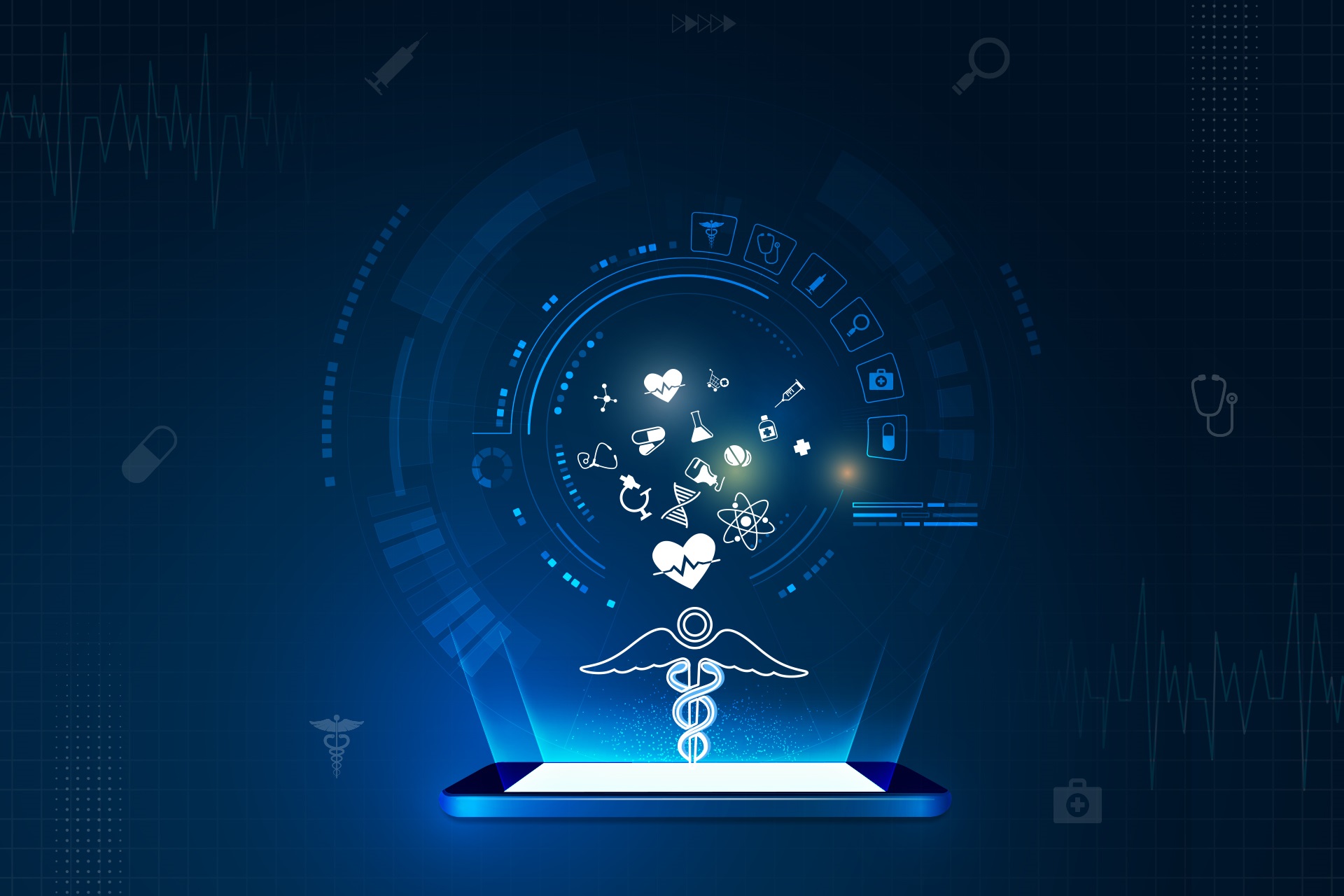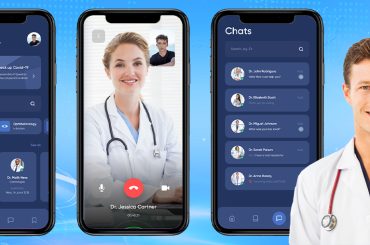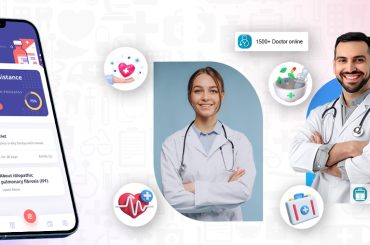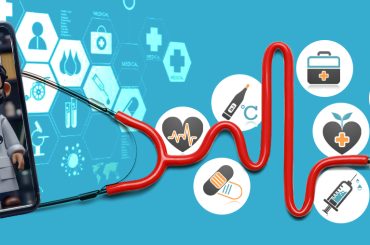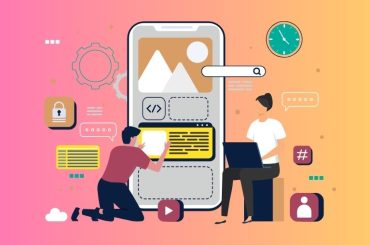Artificial intelligence (AI) will be used more and more in the healthcare industry as a result of the complexity and growth of data in the sector. Payers, care providers, and life sciences organizations currently use a variety of AI technologies. The use of AI in healthcare and ethical concerns are also covered.
When it comes to healthcare businesses, AI companies have flourished. Many healthcare companies are still in the dark about the amazing things artificial intelligence can achieve for their business. Given that, why don’t we discuss the state of AI in healthcare today?
Everything about this idea will be covered in detail, including the changes it has brought, the difficulties in applying AI to healthcare, the advantages it has provided, and other important information. Let’s start this discussion with a cup of freshly prepared coffee!
The Role of AI in Healthcare
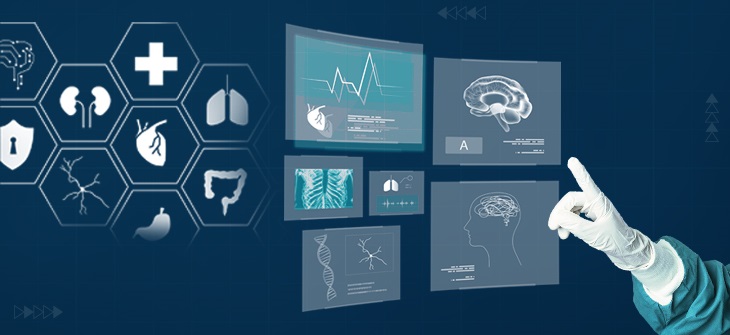
There are a wide variety of applications for AI due to the ongoing growth of data in contemporary medical institutions and the quick advancement of analytical tools. What function does artificial intelligence services in healthcare, then?
In addition to automating several chores, AI may support cutting-edge therapeutic procedures, boost research, and provide new technology possibilities for individualized care. In the end, AI solutions can enhance patient-provider communication, enhance therapeutic outcomes, and create value.
Investors are keenly interested in the healthcare sector as they recognize the advantages of AI. According to research, 111 agreements totalling $2.5 billion were made by healthcare AI startups globally in the first quarter of 2021. When compared to the $1 billion raised in the first quarter of 2020, that represents a 140% increase.
All parties involved in the healthcare sector have enormous potential thanks to AI. Let’s delve deeper into the advantages and dangers of artificial intelligence and see how a medical facility might adopt the technology to improve its results.
Benefits of AI in Healthcare
We are confident that you are already in awe after learning about the amazing advancements made by AI in the healthcare sector. Let’s examine the effects and advantages that the notion of AI has brought to the healthcare sector:
Quick Diagnosis
Healthcare providers may now provide brief diagnoses thanks to AI-driven platforms based on information about the patient’s current and past health conditions.
With this method, the use of ai in healthcare start-ups have encountered several symptoms and have received the appropriate diagnoses. Healthcare experts can draw logical conclusions quickly and prepare a strategy for potential hazards in the future, along with workable methods to deal with them.
Proper Surgery Support
Thankfully, AI has taken off in robotic applications and has been a big success!
AI surgical systems are now accessible to assist with every movement, and they do so with the utmost precision, thanks to the advent of AI in healthcare. Meaning that skilled medical personnel may now carry out complex procedures with almost no risk of adverse effects, blood loss, or pain. As a result, the patient’s chances of making a quick recovery rise.
Superior Accessibility
Advancements have been made thanks to artificial intelligence, particularly in the field of healthcare.
The globe has seen AI dominate the healthcare sector after seeing the advances AI has brought to the sector. Digital tools powered by AI aid patients in diagnosis and therapy.
Applications have been developed that are noteworthy for allowing national and international healthcare institutions to collaborate and effectively help those in need.
Improved Research
Data collection is a key component of all studies. Healthcare professionals who have access to AI can gather vast amounts of data from numerous sources. They can act on vast and constantly expanding amounts of information as a result, leading to more efficient analysis. Research becomes more exact and accurate when it is based on real-time data. AI in healthcare helps identify early symptoms, and telemedicine tools greatly facilitate monitoring patient improvement.
Lowering Heath Stress
And finally, terrible events like burnout happen to doctors everywhere. About 50% of general practitioners report feeling stressed out at work due to deadlines, intense emotions, and other circumstances. AI lessens the stress on medical workers by automating jobs and optimizing processes.
Types of AI Advancements in Healthcare
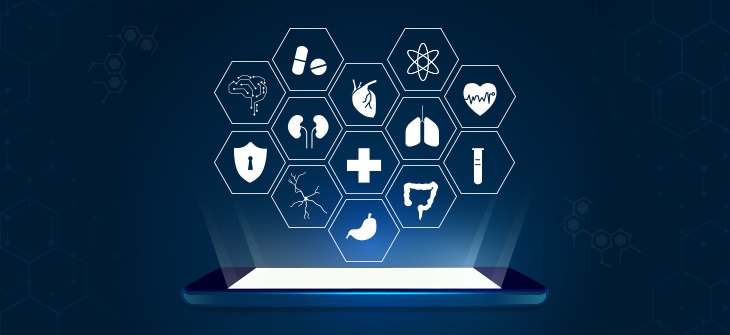
NLP – Natural Language Processing
Since it has been decades since artificial intelligence first appeared, its researchers have been working to precisely understand human language. The idea of natural language processing, or NLP, is useful for a variety of tasks, including text translation, text analysis, and speech recognition.
To maximize the use of these insights, the generation, understanding, and classification of texts are among the core NLP functions. In addition, NLP serves as an analytical tool for unstructured patient data. To conduct conversational AI, it automatically generates reports about the diagnoses of patients and records their communications.
Robotics Process Automation
In reality, robotic process automation has little to do with ML. They are server-based computer applications that employ automation technologies and can learn, simulate, and display rule-based business processes.
RPA is relatively small compared to other artificial intelligence systems. It is also simple to program and monitor because it lacks a clear user interface.
Machine Learning
Here, we’re discussing machine learning, one of the most popular and widely applied types of artificial intelligence. ML is nothing more than a statistical approach that optimizes model fit to data to extract useful insights from the data.
Physical Robots
You might be astonished to learn that every year, over 200,000 industrial robots are placed throughout the world. Industrial robots, as their name implies, are designed to carry out certain activities, such as repositioning, lifting, welding, assembling products, and so forth.
Robots have become more proficient at pacing as the years go by. They are constructed and designed in such a way that training them to move or transition to another duty does not require a lot of work.
Rule-based Expert System
Since a few decades ago, they have primarily been used in “clinical decision support” applications in the field of AI in healthcare, with healthcare entrepreneurs currently making the best use of them. Numerous electronic health record (EHR) providers today include a set of regulations with their systems.
These expert systems need the assistance of human specialists to incorporate a set of regulations about a certain knowledge domain.
When there are many rules, the task gets more difficult since the rules often clash and finally fall out of harmony.
Key Challenges for AI in Healthcare
HIPAA Compliance
We all follow the law, but when it comes to legal matters, there are countless confidentiality and privacy rules that apply to medical data all around the world.
Conditions should be put in place, and medical institutions must also verify strict adherence to these regulations and be in charge of collecting and using patient data. The benefits of flexibility and the upholding of the law can then be appropriately balanced.
Unanimity among people
Disagreements and differences of opinion are inevitable whenever new technology, like artificial intelligence, is introduced to the realm of technology.
Many patients and medical experts are hesitant about artificial intelligence occupying a significant portion of the healthcare sector.
Chances that AI will encounter a roadblock
Machines are human-like in that they occasionally make mistakes. Well, sometimes even machines make mistakes.
Words to Wrap
The patient is at the center of AI in healthcare. To ensure that doctors can grasp some of these AI solutions used in hospitals, we also need to be mindful of how transparent we are in doing so. The idea of artificial intelligence in the healthcare sector has raised the bar for that sector.
Making some of the graphics and diagrams comprehensible and understandable for all data scientists requires deep learning lessons, which are equally crucial.
You may see for yourself the value of the breakthroughs we’ve listed for the top uses of AI in the healthcare sector, particularly regarding healthcare startups. We anticipate that by this point, you have a thorough understanding of AI.

